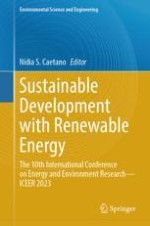2024 | OriginalPaper | Chapter
36. A Hybrid Bank of Didactic Resources for Energy Engineering
Authors : J. Diaz, F. J. Fernández García, M. M. Prieto González, M. B. Folgueras Díaz, I. M. Suárez Ramón, M. P. Castro García
Published in: Sustainable Development with Renewable Energy
Publisher: Springer Nature Switzerland
Activate our intelligent search to find suitable subject content or patents.
Select sections of text to find matching patents with Artificial Intelligence. powered by
Select sections of text to find additional relevant content using AI-assisted search. powered by
